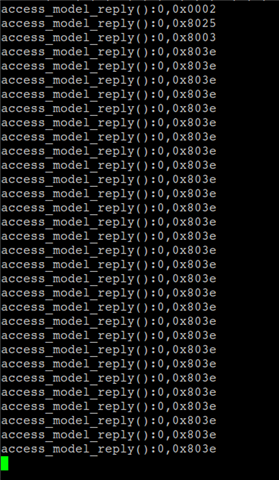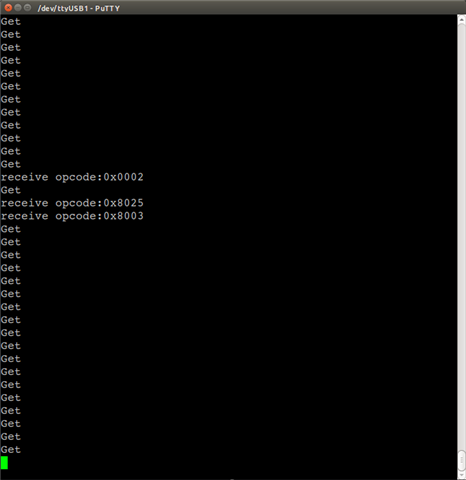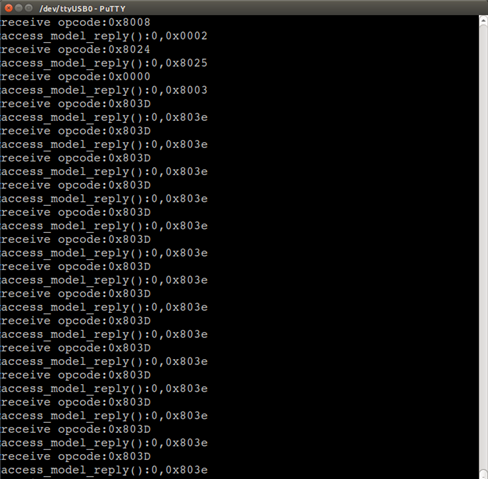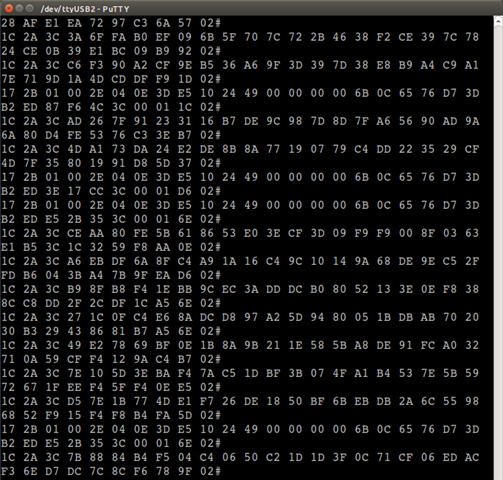board: nrf52832
nRF5 SDK version: v17.0.0
nRF5 SDK for Mesh version: v5.0.0
softdevice: S332
application: light switch client + light switch server + provisioner + ble_ant_app_hrm + ble_app_uart_coexist
My application have two characters to choose: Provisioner/self provisioned Client and Server, user can send UART command to select one of them to initialize on device,
and I delete normal BLE (NUS service)
The problem is, when I set one device as Provisioner/self provisioned Client, and two devices as Server,
the first Server would be provisioned and configured successfully, and the provision of second Server would success, but the configuration of second Server failed occasionally
But, if I turn the first Server off before the provision process of second Server start, the provision and configuration of the second Server would all success
(Once Provisioner/self provisioned Client detect one unprovision Server, ANT+ channel will close automatically)
So I check configuration process, and found it often stuck in receiving opcode CONFIG_OPCODE_MODEL_APP_STATUS or CONFIG_OPCODE_APPKEY_STATUS, although Server receive opcode CONFIG_OPCODE_MODEL_APP_BIND or CONFIG_OPCODE_APPKEY_ADD and reply successfully (return NRF_SUCCESS),
but Provisioner/self provisioned Client didn't receive this reply, although Provisioner/self provisioned Client retry send APP_ADDKEY and wait for an ACK from Server for 2-3 times,
this situation keeps occur
Log:
Provisioner/Client print config_step_execute() in node_setup.c to check what opcode it receive (the value after ":" is the status of message)
Server print send_reply() in config_server.c to check the status of transmission and what opcode it send (the first value is return value of send_reply(), the second value is opcode id it send)
- the process of configuration of the first Server (success) Provisioner/Client the first Server


- the process of configuration of the second Server (fail)
Provisioner/Client the second Server


Then I check function scanner_rx() in scanner.c of Provisioner/self provisioned Client, filter MAC address of the second Server to see if Provisioner/self provisioned Client receive messages from the second Server, I found Provisioner/self provisioned Client keeps receive messages of the second Server like below
- Provisioner/Client:
one "Get" means get one message from the second Server ( recognized by MAC address) ( scanner_rx() in scanner.c)
"receive opcode: (mesh_msg_handle() in access.c)

- the second Server
"receive opcode: (mesh_msg_handle() in access.c)
"access_model_reply()" (send_reply() in config_server.c)

- the first Server:have been provisioned and configured, help me to print the payload of the second Server ( recognized by MAC address), 1-31 bytes are payload, the last byte is header type, '#' is the end of line ( scanner_rx() in scanner.c)

it seems like Provisioner/self provisioned Client can receive messages from the second Server but the ACK of Configuration, it confuses me, is there any way to analyze the payload from the second Server? or Is there any chance that the ACK message of Configuration is filtered out by application of Provisioner/Client?
BTW, if all devices have been provisioned and configured, the communication of two characters works well,
and I have tried increase advertising interval to 100 ms and this (change SCANNER_BUFFER_SIZE to 1024), but it didn't work to me.


